The Evolution of Librarians: Open Education Leadership
Published by: WCET | 6/22/2018
Tags: Digital Learning, Innovation, NCOER, Open Educational Resources, Professional Development, Technology
Published by: WCET | 6/22/2018
Tags: Digital Learning, Innovation, NCOER, Open Educational Resources, Professional Development, Technology
We are proud to have Tanya Spilovoy, WCET Director of Open Policy, provide periodic updates on events in the world of open education. Today’s post talks about her role in the development and teaching of a professional development program for librarians focusing on OER. Librarians have jumped to the forefront in OER planning, leadership, and organization. It is great to engage with them!
– Russ Poulin, WCET
The field of OER (Open Educational Resources) Librarianship has seen rapid growth in the past few years.
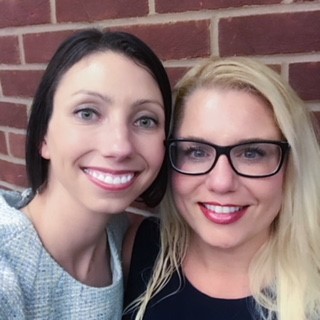
After reading a job post for an OER Librarian that came out in November 2016, an idea came to me. I took it to the organization leading the charge for OER in libraries, SPARC (the Scholarly Publishing and Academic Resources Coalition), and pitched it to Director of Open Education Nicole Allen, one of the nation’s leading OER advocates: “Let’s launch the first professional development program for OER librarians, and let’s do it in a blended online/face-to-face format so we can reach a national scale.”
The leadership program that I envisioned (and ultimately created) was developed in response to market demand and a new need that had emerged. Institutions were advertising for OER Librarians, but there was no professional training to prove competency in this field. It was time to create one.
This idea led to the SPARC Open Education Leadership Program, which we launched in September 2017 with fourteen pilot fellows. Nicole and I designed the program together, and I served as the Instructor. We also brought in Shannon VanHorn as an Instructional Designer and engaged some of the most experienced OER librarians in the field as mentors and peer advisors.
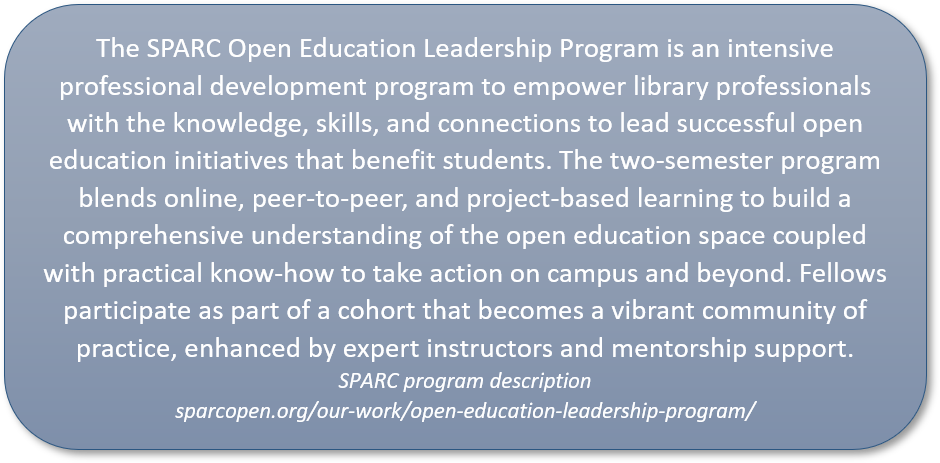
The ingredients to success included Nicole’s deep connection to the OER community, my expertise in online learning and change leadership, and the rich and supportive bonds that developed among the librarians in our first cohort. Throw in a heaping helping of mutual passion for all things Open plus a generous touch of talent and the recipe all came together!
Only 18 months since this idea struck like a lightning bolt, the first SPARC Open Education Leadership Librarian Fellows are about to successfully graduate. The graduates have accomplished more than I ever dreamed possible. It is hard to describe the pride and joy I feel when I read their final portfolios. I encourage you to visit the SPARC website to read about each student’s project and marvel at their outstanding achievements. We will welcome a new cohort of fellows in September.
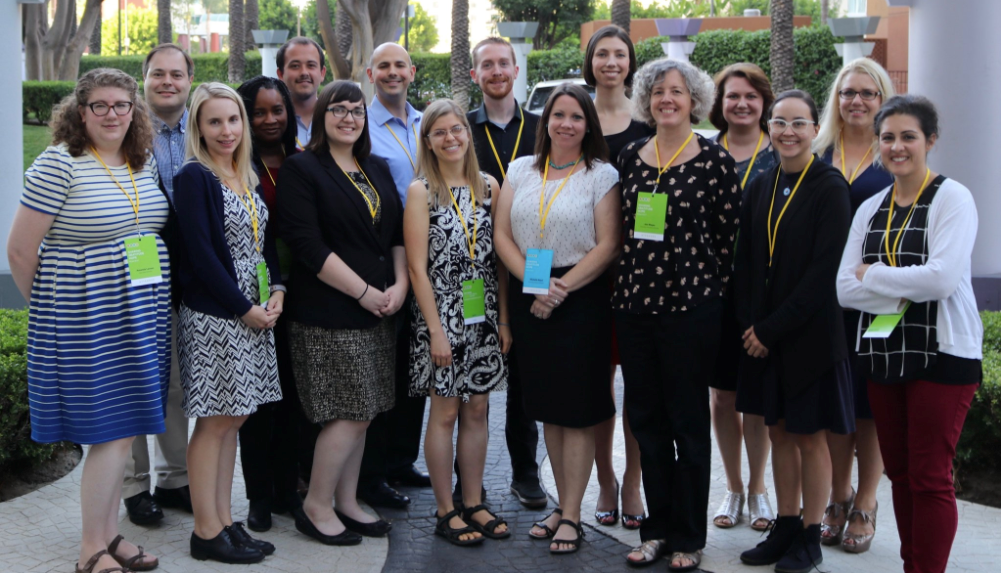
This blog post highlights four of our graduates who work for and implemented OER projects at WCET membership institutions. The content below introduces each WCET member graduate and includes a description (in their own words) of an exciting OER project they have implemented and answers to questions I asked them about their projects.
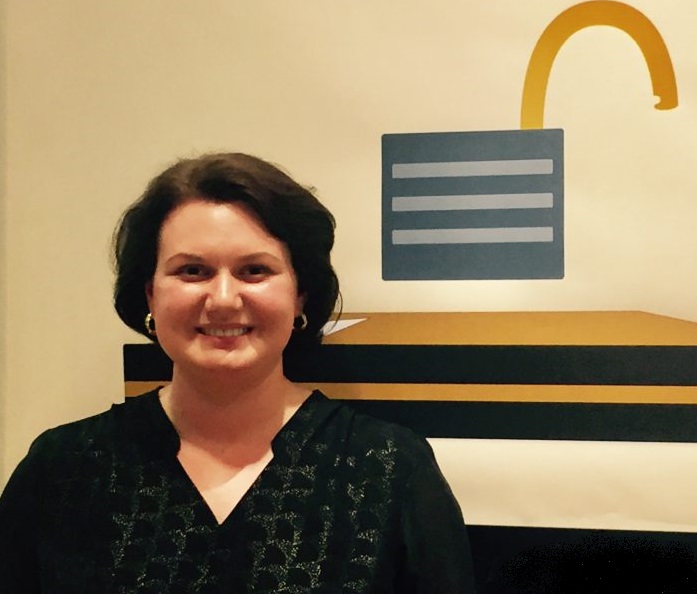
Grace Atkins, Outreach & Open Education Librarian, University of Missouri Libraries
My capstone project explored the importance of working groups in supporting OER initiatives at the campus level. Although the University of Missouri-Columbia campus OER committee’s monthly meetings were useful in planning the big picture, they were ill-suited for addressing the smaller projects that were needed to support campus goals.
So, I formed an operations team, a working group comprising the support units and staff who worked directly with faculty in their creation, adaptation, and adoption of OER and/or with students to support their access of OER. The support units were the libraries, the bookstore, the educational technologies office, and the disabilities center. Together, the operations team and the campus committee were able to complete small projects and accomplish major goals.
What role do librarians play in leading OER on college and university campuses?
Librarians play several roles (see points below about distribution and tools). But I think that the embeddedness of librarians on intracampus projects is the real strength we bring to OER. Because librarians are often the hub of faculty, student, and staff networks, they are well-positioned to lead OER outreach efforts and coordinate campus OER committees and teams.
Talk about the intersection among the fields of technology, libraries, and OER.
Librarians play an obvious role in the distribution of OER—they provide access to OER in the catalog, create online guides, and curate their faculty’s OER creations in their library’s institutional repository. But I think there’s more opportunities to partner with educational technology offices and instructional designers on OER authoring tools and increasing accessibility for students.
What was your experience learning about OER at a distance? Talk about your experience in the SPARC OER Leadership course.
Because the cohort was so tight-knit, the OER Leadership course didn’t feel distant. The Slack channels allowed for directing messaging and creating multiple discussion threads. With so many of the fellows being active on Twitter and attending conferences, the experience transcended our online classroom. After getting a feel for our colleagues’ areas of expertise and interests, it was easy to reach out to each other with questions and ideas.
If you had a crystal ball and could predict libraries and learning resources in 5 years, what do you see?
I see libraries working more closely with educational technologies units and campus bookstores. I think there’s going to continue to be a push-and-pull with publishers in the struggle between equity and profit. I predict that libraries will need to provide more open authoring tools for OER to become more utilized than traditional, high-cost course materials.
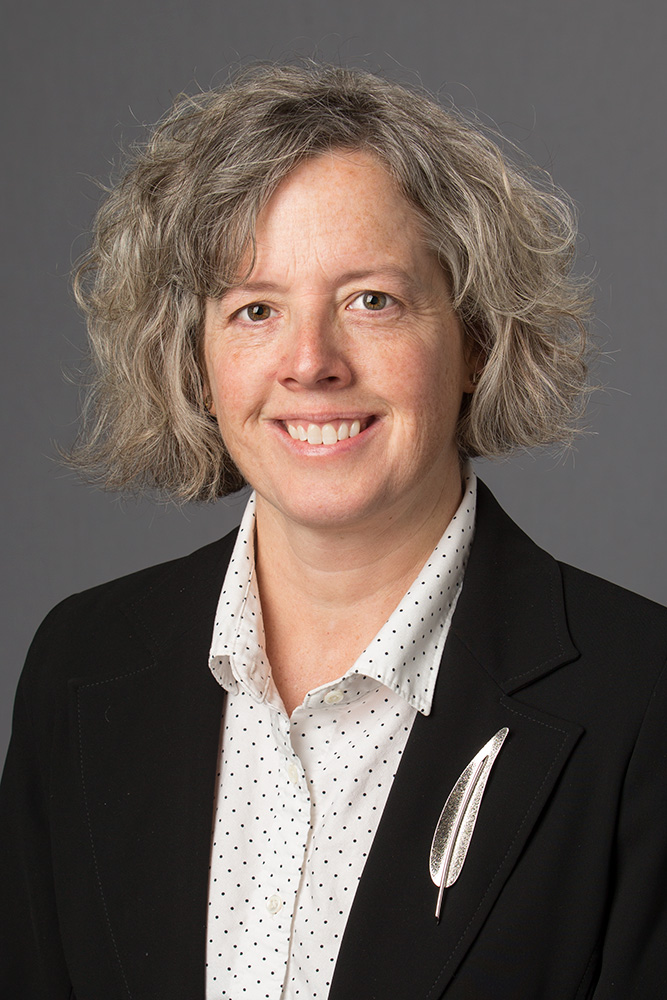 Jen Mayer, Head of Library Research Services, University of Northern Colorado
Jen Mayer, Head of Library Research Services, University of Northern Colorado
My 2017-18 SPARC Open Educational Leadership capstone project focused on the design of two CC BY (Creative Commons licensed) survey instruments, which will gather input from the University of Northern Colorado campus community regarding Open Educational Resources (OER). The titles of the surveys are:
There will be an analysis comparing institution (UNC), state (Colorado), and national-level OER survey results.
What role do librarians play in leading OER on college and university campuses?
It makes sense to me that academic librarians, who actively support student learning and success, are involved with initiatives that expedite faculty and student engagement with OER. Many librarians lead OER steering committees and partner with a variety of campus stakeholders. Others lead professional development activities, partnerships with programs such as the Open Textbook Network, and disseminate OER project grant money to support faculty in this area.
Talk about the intersection among the fields of technology, libraries, and OER.
These three areas—tech, libraries, and OER—are inseparable. Librarians have typically been early adopters of a variety of technologies related to discovery and access to information, teaching, and more. One of the many benefits of working with OER is that one does not have to be extremely tech savvy to adopt, adapt, or create them.
What was your experience learning about OER at a distance? Talk about your experience in the SPARC OER Leadership course?
Being a student in the online SPARC OER Leadership course was seamless. Slack was an ideal course platform—it was intuitive and worked well for communicating and sharing information. The course content was clearly presented and relevant to my interests. The assignments, discussions, and capstone were extremely effective. The course was a lot of work, but well worth the knowledge I gained from the instructor and members of the cohort. I am fortunate to have the course archive to refer to in the future.
If you had a crystal ball and could predict libraries and learning resources in 5 years, what do you see?
I am a librarian in Colorado and based on the positive response to OER funding from the state legislature, I envision the increasing use of OER by faculty and students in our state education system—K-12, community college, and university-wide. It is exciting to consider an environment that embraces open resources and all the benefits that open pedagogy and open resources bring with them. I see libraries increasing their commitment to influencing change for more democratic academic publishing practices, providing open access to scholarly information via institutional repositories, and of course, continuing to be a learning hub on campuses.
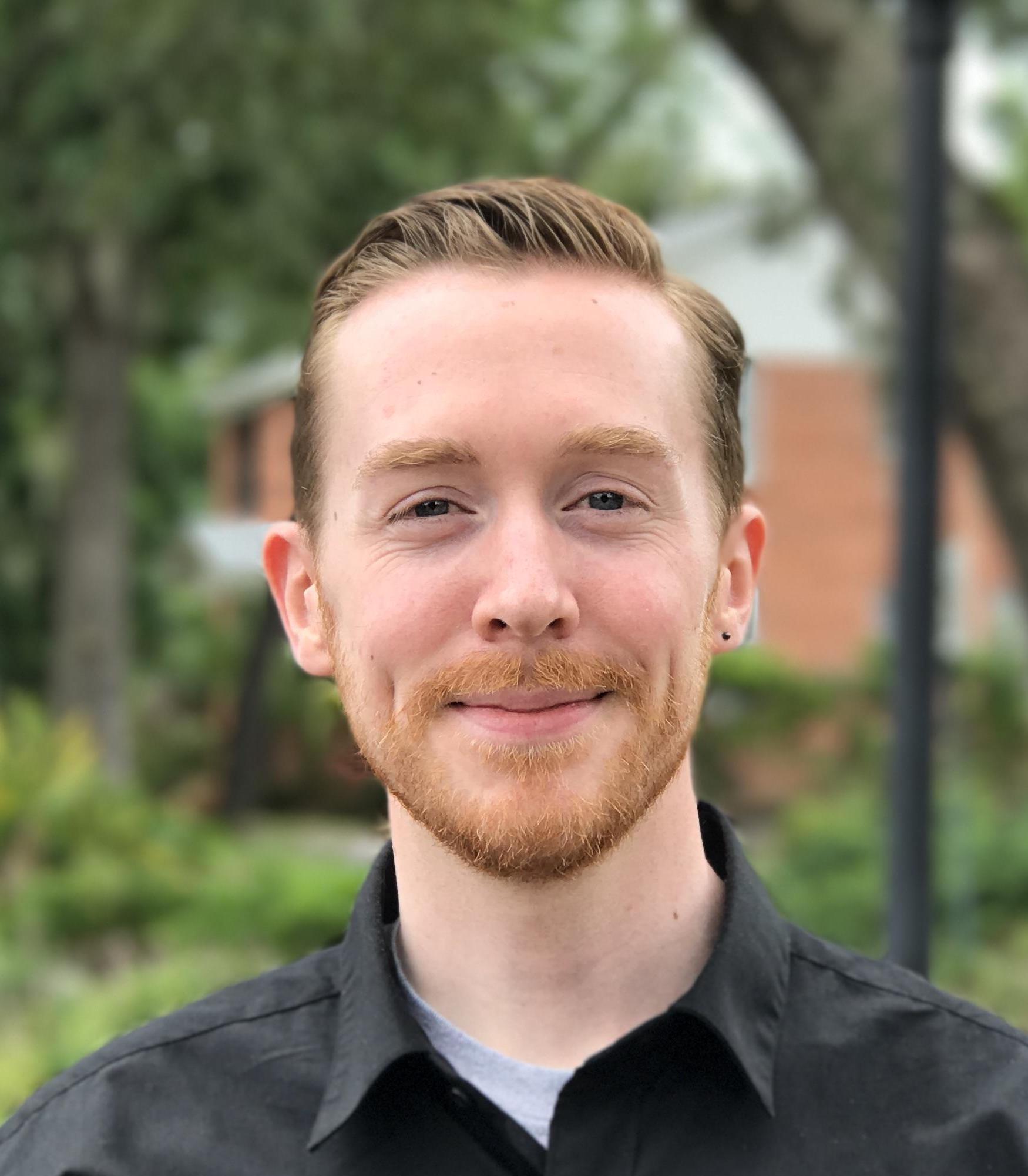 Devin Soper, Scholarly Communications Librarian, Florida State University
Devin Soper, Scholarly Communications Librarian, Florida State University
My capstone project involved convening a one-day Open Education Symposium at Florida State University on March 8th, 2018. The purpose of the symposium was to raise awareness about Open Educational Resources and their potential to support student success by reducing textbook costs and creating opportunities for open, learner-centered pedagogy. To document the symposium and facilitate the planning and promotion of similar events at other institutions, I shared all outputs and planning in an Open Science Framework project under either a CC BY 4.0 license or a CC0 1.0 public domain dedication.
What role do librarians play in leading OER on college and university campuses?
Librarians play a crucial role. Increasingly, academic libraries are creating dedicated positions to advocate for and develop services to support open educational practices. In other cases, librarians find time to advance initiatives in this area alongside their other duties and responsibilities. Either way, librarians’ have valuable expertise in finding and evaluating information sources, navigating copyright and licensing concerns, and advising on publishing platforms and best practices – all of which help to address important points of need for teachers and learners who are interested in adopting or creating OER.
Talk about the intersection among the fields of technology, libraries, and OER.
Technology has long been the lifeblood of academic libraries. Many libraries are fortunate to have in-house IT staff with expertise in systems administration and web development, while others devote resources to licensing and providing technical support for third-party systems. Perhaps more importantly, almost all libraries have tech savvy, service-minded experts who can assist with the basic technology needs associated with OER projects – an asset that teachers and learners might not otherwise have easy access to from other units on campus.
What was your experience learning about OER at a distance? Talk about your experience in the SPARC OER Leadership course?
Participating in the SPARC OER Leadership Program was a wonderful opportunity to learn more about open education and connect with a stellar cohort of colleagues working on OER initiatives at other institutions. The instructors were superb, the curriculum was excellent, and the opportunities to share and engage with other fellows were invaluable.
If you had a crystal ball and could predict libraries and learning resources in 5 years, what do you see?
My hope is that libraries will not only continue to devote people and resources to promoting open educational resources, but also collaborate with campus partners to develop sustainable, community-owned support services and infrastructure to enable broader adoption of OER at campuses across North America. That said, we must be vigilant in the face of growing investment in this area from the corporate sector, which could lead to the proliferation of expensive commercial solutions that pose risks to sustainability and student privacy, to name just two of the more immediate concerns.
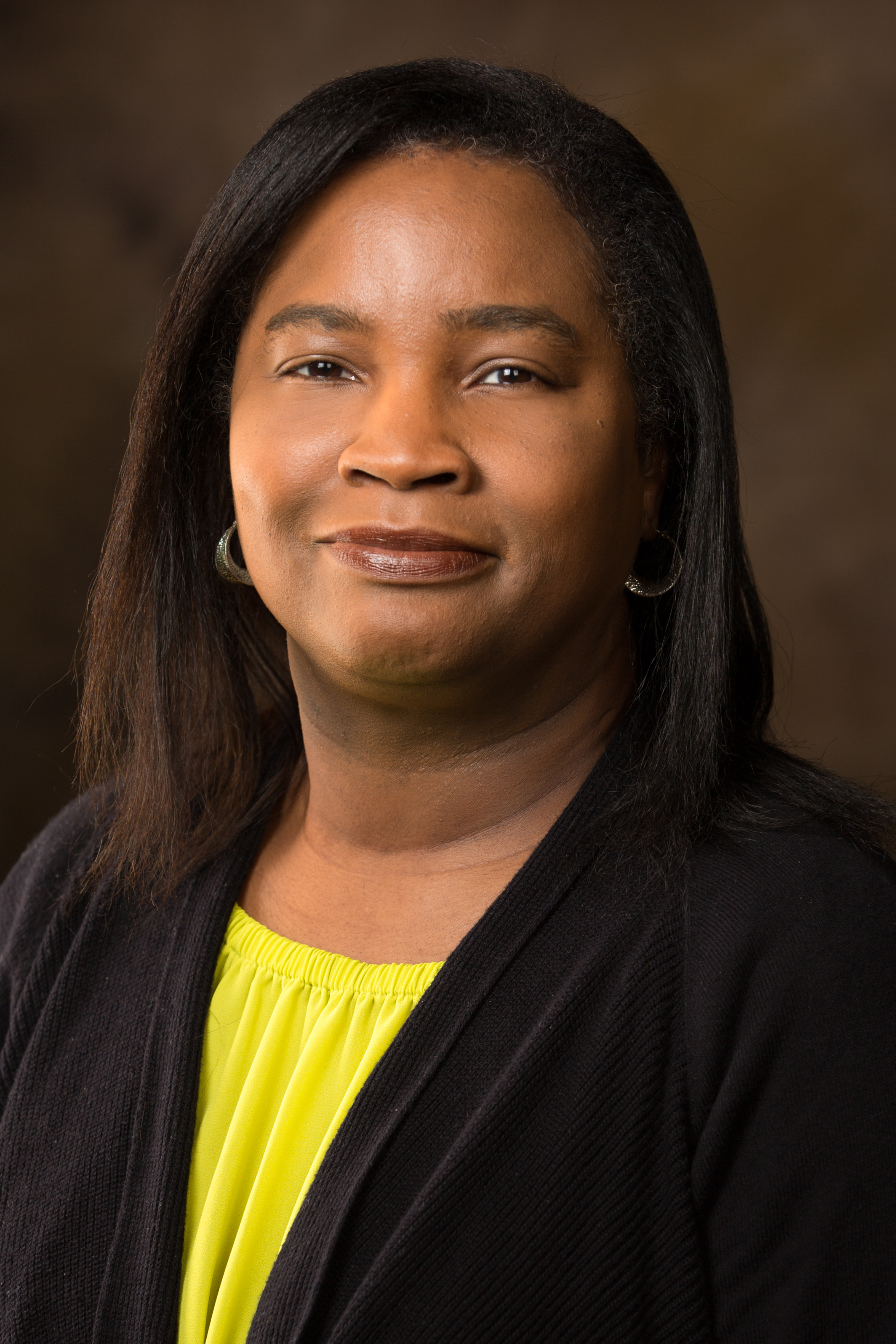 Elaine Thornton, Distance Learning Librarian, University of Arkansas
Elaine Thornton, Distance Learning Librarian, University of Arkansas
I used my OER project to focus on writing some guidelines for my campus incentive program. We needed documentation for our program and a standard workflow plan. The project allowed me the opportunity to create a living document that offers an overview of our local plan and also encouraged me to create some forms and templates that could be shared publicly with open licenses. Additionally, because raising OER awareness through faculty outreach is also important. I also set a goal to contact the campus teaching center a seek a partnership with them. This effort was successful and the OER team is set to present four faculty development luncheon sessions in September. For the project, I created a presentation outline, handouts, and additional templates.
What role do librarians play in leading OER on college and university campuses?
At many universities, librarians have taken the lead as OER advocates. Librarians have long been interested in issues related to open access publishing. OER is an extension of this. The University of Arkansas is no exception. Through a partnership with the Global Campus (Distance Learning), the University Libraries have been working diligently for about three years to advance and advocate for OER on our campus. We’ve done this by offering financial incentives to faculty who want to create, adopt, or adapt OER, working with student government on resolutions supporting OER, and by advocating for OER in any way we can.
Talk about the intersection among the fields of technology, libraries, and OER.
As the distance learning librarian, I am deeply engaged in the intersection of technology and libraries. In my position, I seek to understand and address the challenges distance learners and online teaching faculty encounter when trying to use library resources and conducting library research online. This is perhaps why OER advocacy is a natural addition to my role. It allows me to encourage faculty to consider OER, when suitable, for their distant students. The students are engaged in technology-rich environments and access to online OER course materials is a natural fit. Many of these students are adult learners who also have financial concerns as they are trying to pursue degrees while often also working full time jobs and taking care of families and homes. OER can help relieve some of the financial burdens associated with pursuing degrees online.
What was your experience learning about OER at a distance? Talk about your experience in the SPARC OER Leadership course?
I had a great experience learning about OER at a distance. I was a distant student in a graduate degree program over a decade ago and a lot has changed! As a distance learning librarian, I encounter distance learning issues and opportunities on a daily basis and help students and teaching faculty get through them. I enjoyed being on the other side of it. The SPARC OER Lead program was especially interesting to me because it was managed without a standard LMS. Yet, it ran smoothly. This was an amazing feat! I appreciate the thought, planning, and leadership that went into making the student experience so rich and engaging. I also think the cohort learning model and the experiential learning approach were also important elements of the program’s success.
If you had a crystal ball and could predict libraries and learning resources in 5 years, what do you see?
In my crystal ball, I see academic libraries continuing to engage their campuses on OER issues. I predict continued growth in academic library OER advocacy. I see OER projects created on campuses through library sponsored initiatives becoming a rich source of free and open content that is available to learners around the world.
Librarianship as a profession have evolved so much in the past 20 years, and it continues to grow and change every day. Having the chance to work closely with librarians has changed my perception of the profession. If I can illustrate in Pokémon evolution terms, my memory of the librarians at my childhood local public library is a lot like Charmander. The way I see OER Librarians today is like Charizard (minus the flame throwing). Sometimes overlooked as a key allies by other stakeholders, librarians are now a formidable force in the battle against the rising costs of postsecondary education.
If you’re interested in establishing an OER initiative at your institution, system, or state, be sure to engage your librarians. They are experts in cataloging, finding, and sharing resources. They are tech savvy professionals who care deeply about students, faculty, and education. OER Librarians are a unique specialized group who can lead various Open Educational Resources initiatives. I’m proud to share my bright students with you. I can’t wait to see the great things they do next.

Tanya M. Spilovoy
Director of Open Policy
WCET – WICHE Cooperative for Educational Technologies
@TanyaSpilovoy

1 reply on “The Evolution of Librarians: Open Education Leadership”
[…] https://wcet.wiche.edu/frontiers/2018/06/22/the-evolution-of-librarians-open-education-leadership/ […]